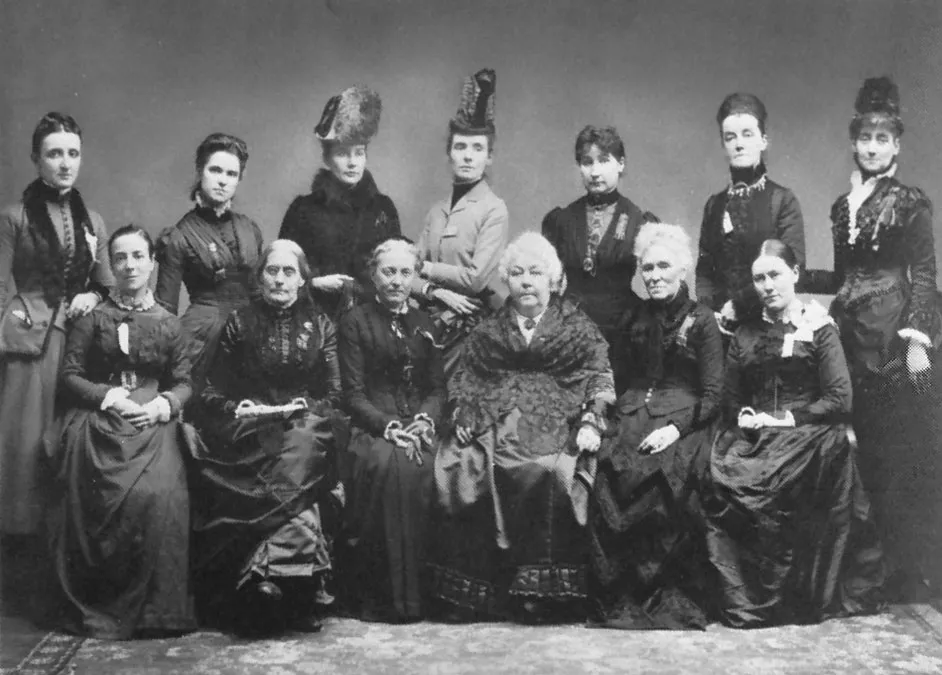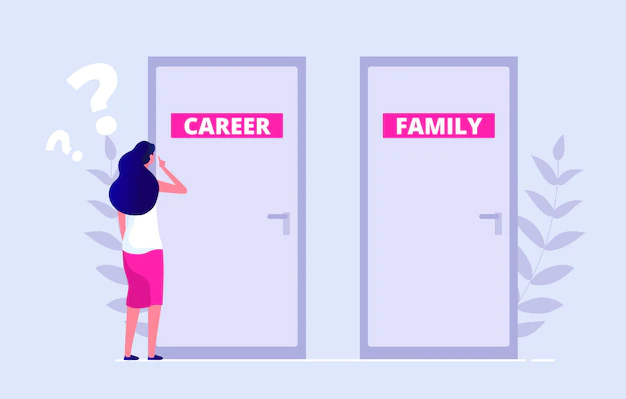On the 8th of March the university of Passau celebrated the International Women´s day with the Panel “Opportunities for female early researchers”. Six participants from university Passau took part in the discussion lead by Isabella Graßl, doctoral candidate at the Chair of software engineering. The discussion topics included problems, experiences and solutions to the suffrage of women in academia.
Making invisible women visible
Gerhard Hegel once said: “Women may well be educated, but they are not made for the higher sciences, philosophy, and for certain productions of art which demand a generality.“
Women in academia were ghosts of their time unseen behind their male companion´s work. It´s called the Matilda-effect. To unravel the stories of magnificent and talented women like Ada Lovelace who invented the computer program “Analytic Engine” to calculate Bernoulli chains, a pioneer for later computer-based programs, Matilda J. Gage (1826-1898), American writer, activist and eponym of the Matilda-effect, documented their work in articles, pamphlets and books. To name two of her published pieces: Women as Inventor (1870) and Woman’s Rights Catechism (1871). In 1869 she cofounded the National Woman Suffrage Association (NWSA) with Elizabeth Stanton and Susan Anthony. She was the voice for working women in the 19th century.

But what about today? Nowadays, more women than men go to university, but only every fourth fulltime professorship is given to a woman. Why are women out of the game once they enter the battlefield of academic research? There´s one question, the question that decides the further course of the match: Academic career or family?
You´re out!
Women can never please everyone! Whatever choice they make towards family or academia someone always gets upset or has a mightier opinion about it. The two main problems of trying to combine family and academic life are the high expectations from society and the system we live in. Females unlike men must prove themselves worthy of knowledge and skills. Men are naturally considered more competent and therefore taken more seriously. Panellist Jelena Mitrovic, CAROLL Natural Language Processing Research Group Leader (PhD, Assistant Professor) at the faculty of computer science, was called out by her superior for being dressed to pink to be taken seriously. Caroline Reinhardt, Professor for Applied Ethics at the faculty of Arts and Humanities, was suggested to speak in a lower voice. Should women have to give up their personality to become more like men in order to be taken seriously instead of embracing the differences?
“Women are fine! We need to take our focus of the deficit perspective! It´s the system that needs to change!” – Caroline Reinhardt
The Fusion of starting a family or an academic career is therefore so complicated, because of the overlap in timing. At a certain age you must be at a certain academic level to be able to remain in research. Most PhD programs have an age limit for applicants for example. If you decide to start family, women are confronted by many critical voices. If a woman takes the maternity leave: She´s out of academia. If she doesn´t stay home or not long enough: She´s a bad mother. Why do men get celebrated for taking their parental leave and women don´t? It´s the voice of the system telling you it´s the norm for women to take care of the children. The German education system does support academic parents, but mostly students. What of the post-docs or professor assistants? Jelena Mitrovic voiced out that her daughter was only able to go to kindergarten if not all of seats were taken up by students´ children. A general issue for families is the decrease of mobility as they children build a live for themselves. Should they have to give up their live in order for their parents to pursue their dreams or choose to live apart from them?

So many women enter university, but the percentage of women fades by every step they climb the academic leather. The problem: There are not many female applicants for PhD and even lesser professors. “We have as many male professors called Thomas as we have female professors”, said Juri Biswas, Panellist and student representative and member of the Diversity Audit project team. He stated that the patriarchy in our society goes so deep that even the example cases in the law faculty are presented with male players.
If the conditions are extremely hard, then why choose the path of becoming a female researcher?
Patricia Bachmann, Panellist and computer science student and holder of the scholarship for female students in STEM subjects, answer: “The are not many people who applied and it´s a small team. You have the opportunities and are being supported personally and with mentoring programs.” There is a huge deficit of female role models in academia. We need to fill that void with talented and motivated women and give them a voice so that younger generations will have great female role models to look up to! Different approaches are therefore needed: In social studies many women enter the bachelor’s degree, but as they climb the career leather the department loses more women over the time! The mathematics and informatic chair has a different problem: Not many women enter a bachelor´s degree and even less start an academic career. But even if we need two different approaches we should start with the basics. Children at a young age need more opportunities to get a connection to different academic areas. Teachers and parents should be aware of diversity and support them.
How to take action:
1. Raise Awareness: If you´re personally confronted with a structural problem, it´s not your personal problem!
2. Discussion: It´s not about being right or wrong it´s about widening your perspective!
3. Fairer judgement: Lower the expectations and limits for women to start or come back into academic research!
4. Networking: You don´t have to do it by yourself! Use the sanctions and the support! Don’t feel bad and take all the help and experience you get, because women are behind!
5. Stay strong-minded and patient: It´s takes time to change norms and society! A starting point could be changing the patterns of exercises and exams or making diversity workshops mandatory in education!
Conclusion
The panel was presented by men and women which is a very important step towards embracing diversity! I´ve only seen about five men watching the panel today, but women´s suffrage is a problem that we face together to overcome the barrier between men and women! I talked to many international students after the discussion who had different approaches on the topic. In some countries diversity is seen totally different and has not the same priority as in Germany. To keep that in mind I would love to see more faculty member, students or representatives with different cultural backgrounds in the next panel to get a global perspective.
Women should be acknowledged for their work in academia in regards of fairer judgement and fairer expectations! No women should hear the words “And she doesn´t even have 3 kids!” ever again! Let´s continue Matilda J. Gage´s work and create new female role models for the generations to come! Let´s make family and an academic career work because women can do it! Finally, to everyone out there telling us we act too girly: Fuck yeah! We´re women and we´re proud of it!
Quellen zum Nachlesen:
Matilda Joslyn Gage | Biography & Facts | Britannica
Der Matilda-Effekt: Wie Frauen in der Wissenschaft unsichtbar werden | National Geographic
Weltfrauentag: Gewusst? Diese Dinge haben Frauen erfunden | BRIGITTE.de
107 Zitate aus Hegels Gesamtwerk – hegel-system.de
International Women’s Day 2023 • The University of Passau (uni-passau.de)



Neueste Kommentare